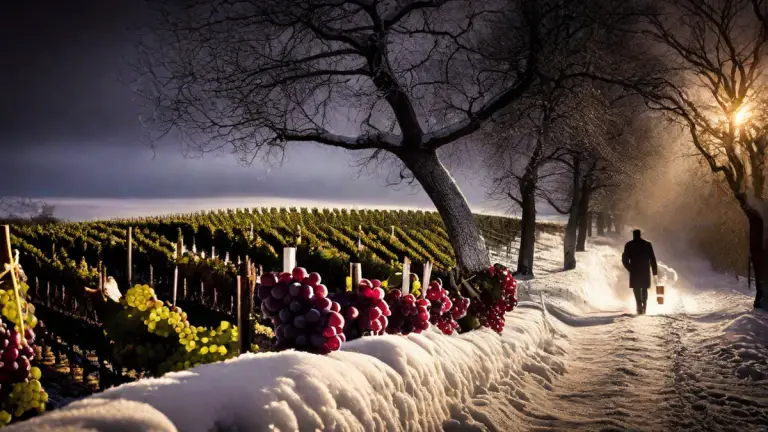Have you ever opened your freezer, only to discover a neglected bottle of wine hidden in the back? Believe me, I understand. As a lover of wine, I couldn’t resist delving into the effects of freezing on wine. Therefore, I have decided to thoroughly explore this subject and share my discoveries with you.
First and foremost, it’s important to note that freezing wine is not ideal. Wine is a delicate and complex beverage that can be easily affected by extreme temperatures. When wine freezes, the water content turns into ice, expanding and causing the bottle to crack or even burst. This can result in a messy and wasteful situation, not to mention the potential loss of a valuable bottle of wine.
But what exactly happens to the wine itself when it freezes? Well, let’s break it down. When water freezes, it expands, and this expansion can disrupt the delicate balance of flavors and aromas in the wine. The ice crystals can damage the structure of the wine, leading to loss of flavor and texture. In red wines, the tannins may become more pronounced and the fruit flavors can become muted. White wines may lose their crispness and freshness.
Furthermore, when the wine thaws, it may not return to its original state. The freezing and thawing process can cause the chemical compounds in the wine to break down, altering its taste and aroma. This means that even if the bottle doesn’t crack, the wine may still be compromised.
So, what should you do if you accidentally freeze a bottle of wine? First, resist the temptation to quickly thaw it out in the microwave or by placing it in hot water. Rapid temperature changes can further damage the wine. Instead, let the bottle thaw slowly in the refrigerator. This gradual thawing will minimize the impact on the wine’s quality.
Once the wine is thawed, it’s important to assess its condition before deciding whether to drink it. Look for any signs of leakage or unusual smells. If the wine appears to be intact and doesn’t exhibit any off-putting aromas, you can give it a try. However, keep in mind that the wine may not taste exactly as it should, and you may be disappointed with the results.
Ultimately, it’s best to avoid freezing wine altogether. Proper storage is key to preserving the quality of your wine collection. Keep your wine in a cool, dark place, away from direct sunlight and extreme temperature fluctuations. Invest in a wine refrigerator or cellar if you’re serious about maintaining your wines in optimal condition.
In conclusion, freezing wine is not a desirable outcome for any wine lover. It can lead to bottle breakage, as well as alterations in taste and aroma. If you find yourself in a situation where a bottle of wine has frozen, take your time to thaw it slowly and evaluate its condition before deciding whether to drink it. Remember, prevention is always better than a frosty surprise in the freezer!




